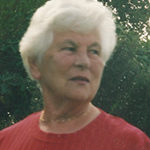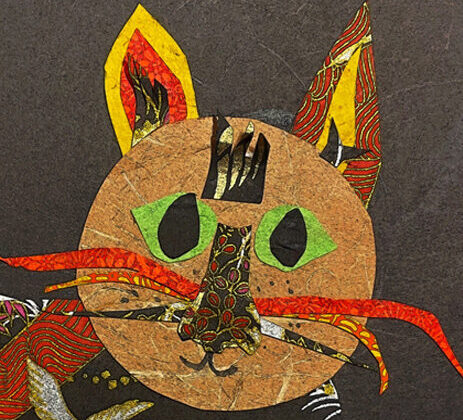Patricia Prime
The Man in the Shawl
a penny
on the footpath
the road less taken
On my way home from school, I would often call into my parents’ shop on high street to see whether mum wanted me to get some shopping or do chores for her. From there, I’d continue home along the shop-fronted main road, busy with traffic and buses. But sometimes I took the longer, quiet back road, full of suburban houses.
Along that quiet road, I would see an elderly man sitting by his gate. He always wore a yellow and black knitted hat, a coloured shawl around his shoulders, and a rug on his lap. I’d wave to him or say hello, but one day I stopped to talk. I told him my name and he said he’d call me Patsy (no one else ever called me that). I said I’d call him Mr. Bee because he reminded me of a bumblebee in his shawl and colourful hat.
In the following months, we had many conversations. He told me he’d served in WWII, had been captured by the Germans and spent the remainder of the war in a concentration camp. A musician, he had survived only because he’d been able to play his violin for the Nazi soldiers. His voice grew softer at the heaviness of his memories.
After the war, he’d played in a dance band for many years, as well as in an orchestra on a tourist ship that travelled the world. He added that his son was now a violinist in the London Symphony Orchestra. I said I was in the school choir; we had performed at the Royal Albert Hall and Southwark Cathedral, and every year performed a concert for our parents. I was also in a church choir where we sang Gregorian plainchant. He hadn’t heard plainchant, so I sang a phrase in Latin, but it sounded silly with only one voice.
Our conversations by the gate continued for a couple of years, once or twice a week. Then, one afternoon, he wasn’t at the gate.
news of his death—
the long way home
longer
About the Author

Patricia Prime is co-editor of the NZ haiku journal Kokako. She is the articles editor for contemporary haibun online and also a reviewer for Atlas Poetica, Takahe, and other journals.

So touching . . .
Surely the Nazis were in WWII. But I’d like to hear the plainchant, and Mr. Bee’s violin, and walk the residential backstreet. Well told.
A word painting…could see everything from start to finish.
So beautifully written
Powerful imagery! A dramatic end to the prose and poem.